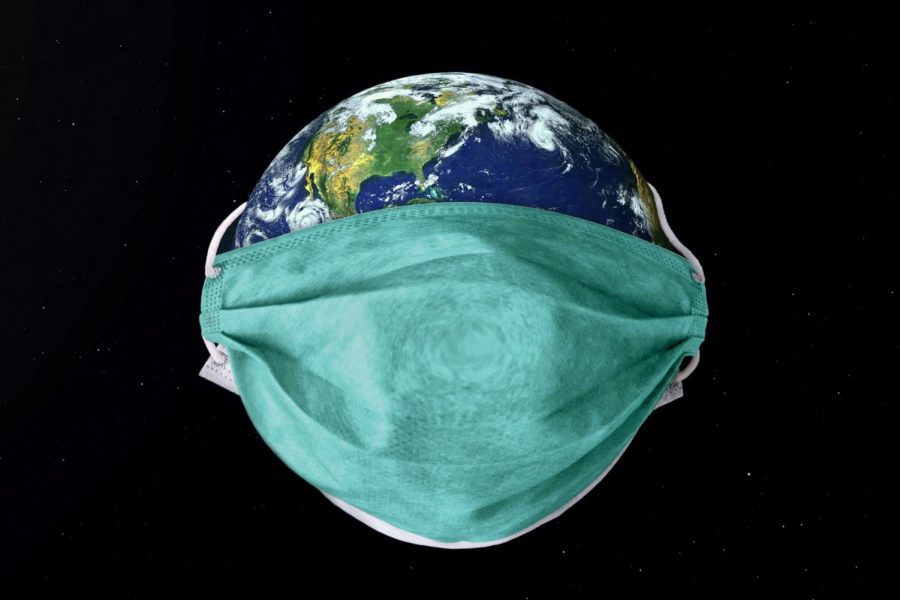Environmental impacts of COVID-19: Silver lining or another negative?
With the announcement that Michigan residents will be quarantined for longer than anticipated, many scramble to find any positives during this dark period. The health and economic impacts of the virus may be dismal, but through it all, our planet has been given a break to heal. Or so was initially thought.
Greenhouse gasses have been at an all-time low, which some see as an opportunity for the climate to stabilize. With people confined to their houses, less automobiles have been running, releasing less exhaust. “Probably the best positive impact is less fossil fuel emissions from cars. This is somewhat offset by home heating and transportation for deliveries,” says Cynthia Giffen, a lecturer in the Ecology and Evolutionary Biology Department at the University of Michigan.
“I’m noticing that my asthma isn’t as bad,” says Nora Gillard, a Pioneer sophomore, “like the air quality is better.” The scientific community echoes this. “People with respiratory issues are disproportionately affected by both air pollution and are at greater risk for complications from COVID,” says Giffen, “so, less smog means those people are (literally) breathing easier, but I’m sure the virus has increased their anxiety.”
The positive impacts of this quarantine leave many environmental scientists and climate activists hopeful that even after people return to their normal lives, they will live in a more energy-friendly way. “The shutdowns are not going to permanently reduce greenhouse gas emissions, which is what needs to happen to stay within the 2 degrees Celsius ‘safe limit’ for global temperature increase,” says Giffen. “To stay within 2 degrees of warming, we need to reduce greenhouse gas emissions to zero within 10 years.”
Although there are benefits to the environment, there are also plenty of downsides. “With everyone concerned with COVID-19 the use of single use products has increased and recycling in many communities has been suspended,” says Douglas Bernardin, a Pioneer earth science teacher. “In addition, the Environmental Protection Agency issued a sweeping suspension of its enforcement of environmental laws, telling companies they would not need to meet environmental standards during the coronavirus outbreak.”
Similarly, the safety guidelines have increased the use of disposable materials. “I’ve seen lots of waste from disposable gloves and masks, just thrown on the ground,” says Giffen, “I also think some people are buying food in excess, which results in a lot of food waste.”
Due to people’s confinement indoors, many busy streets have been left empty. With the absence of humans, wildlife roams free. James Cihak, a Toledo, Ohio, resident, remarks that he has seen many more turkey vultures in the streets than ever before. According to a New York Times article titled “Brawling Monkeys. Wandering Deer. Blame Coronavirus,” in Thailand monkeys usually dependent on tourists for food explore streets in search of sustenance. Racoons have been spotted in urban areas more frequently, as well as coyotes. “There was an entire herd of deer outside my house,” says Gillard, “…way more deer than we usually see.”
Giffen has concerns about wildlife post quarantine. “I’m personally a little worried that we’ll see an increase in human-wildlife conflict once things get back to normal,” she said. “At the same time, we might be just noticing animals more because we are at home, looking out our windows more, taking more walks around neighborhoods, and being better observers.”
During this time, many are hopeful that we can adjust our way of living, keeping the same routines that have been beneficial to the earth. “I hope in an attempt to ramp the economy back up we don’t forget about the climate crisis,” says Bernardin.
Giffen shares a similar concern. “I hope we learn that we can live really satisfying lives with less stuff, less driving, and less waste,” she said. “If we can make some of these new more environmentally responsible habits permanent, collectively we can do a lot of good.”


